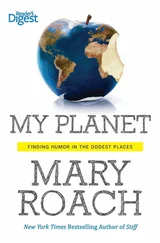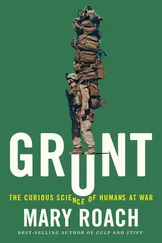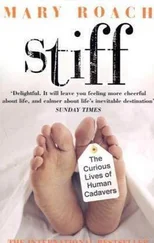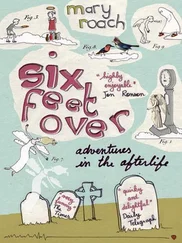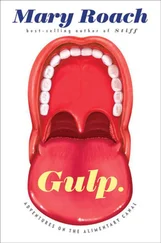Likewise, if you stop jarring and stressing your bones—by going into space, or into a wheelchair or a bed-rest study—this cues the strain-sensing osteoclasts to have bone taken away. The human organism seems to have a penchant for streamlining. Whether it’s muscle or bone, the body tries not to spend its resources on functions that aren’t serving any purpose.
Tom Lang, a bone expert at the University of California, San Francisco, who has studied astronauts, explained all this to me. He told me that a German doctor named Wolff figured it out in the 1800s by studying X-rays of infants’ hips as they transitioned from crawling to walking. “A whole new evolution of bone structure takes place to support the mechanical loads associated with walking,” said Lang. “Wolff had the great insight that form follows function.” Alas, Wolff did not have the great insight that cancer follows gratuitous X-raying with primitive nineteenth-century X-ray machines.
How bad can it get? If you stay off your feet indefinitely, will your body completely dismantle your skeleton? Can humans become jellyfish by never getting up? They cannot. Paraplegics eventually lose from one-third to one-half of their bone mass in the lower body. Computer modeling done by Dennis Carter and his students at Stanford University suggests that a two-year mission to Mars would have about the same effect on one’s skeleton. Would an astronaut returning from Mars run the risk of stepping out of the capsule into Earth gravity and snapping a bone? Carter thinks so. It makes sense, given that extremely osteoporotic women have been known to break a hip (actually, the top of the thighbone where it enters the pelvis) by doing nothing but shifting their weight while standing. They don’t fall and break a bone; they break a bone and fall. And these women have typically lost a good deal less than 50 percent of their bone mass.
NASA funded the work that led to Carter’s computer models. “But it seems like no one there read our report,” he says. “They have this idea that they can send astronauts up and the bone loss will level off in a few months, but the evidence that has come back doesn’t support that view. If you look at a two-year mission to Mars, it’s kind of a scary prospect.”
SOME BED-REST FACILITIES call their volunteers “terranauts.” At first I assumed this was done to confer a sense of importance to the pursuit, like calling a janitor a sanitation engineer. But the day-to-day existence of the three-month terranaut bears similarities to that of an astronaut orbiting Earth. Each day begins with wake-up music on the speaker system. (It was Metallica [66] Astronauts’ families take turns picking it. In the Gemini era, Mission Control would pipe in music, not always in a pleasing manner, as this Gemini VII exchange suggests: CAP COM [capsule communicator]: …How do you like the music? COMMAND PILOT FRANK BORMAN: We turned it off. We got a little busy there and we turned if off for a while. CAP COM: Okay. They’ve got some good Hawaiian stuff coming up to you.
on the space station this morning; “some Beethoven thing” at FARU.) You spend your time confined to a small room, or cluster of rooms, and if you try to go outside, you are in trouble. Privacy is hard to come by. At FARU, closed-circuit cameras are aimed at the beds, so staff can be sure everyone is staying flat. (Subjects are allowed to pull the curtain that surrounds their bed only when they use the bedpan.) Whiners are not a good fit. Leon says he went through an irritable patch at the halfway point of his stay, but that he is “so chipper they didn’t notice.” In the half hour I’ve spent with Leon, I have heard only one complaint. It involved the chicken. “It’s little squares. I want chicken with a bone and skin on it! Don’t give me those cubes.”
Leon excuses himself, because the masseuse is coming. Unlike astronauts, bed-resters get a massage every other day to help with the lower back pain that is a common side effect of taking a load off. Obliviously, doctors used to prescribe bed rest for patients with lower back pain. According to a 2003 article in Joint Bone Spine , [67] An unusual display of syllabic restraint in journal naming. Only Gut earns my higher praise. Take note, American Journal of Orthodontics and Dentofacial Orthopedics , Official Publication of the American Association of Orthodontists, Its Constituent Societies, and the American Board of Orthodontics .
regardless of what ails you, it is almost always a good idea to get out of bed as soon as you can.
Without the weight of a body compressing it, the spine’s curvature lessens and the discs between the vertebrae expand and absorb more water. Astronauts are as much as 2.5 inches taller after about a week in space. (The typical gain is 3 percent of one’s height.) Like children, they will “outgrow” their suits if a “growth” spurt has not been factored in.
AARON F. HAS BEEN “head-down” for eight weeks. (The term refers to the 6-degree tilt of the beds. Since weightlessness causes body fluids to shift to the upper part of the body, so must bed rest.) A large fan by his bed is running at top speed, not to cool him but to mask the noises out in the hall. He’s been feeling trapped, unable to get away from it. Not helping matters: His roommate Tim is still in his “ambulatory period.” He goes head-down in a couple days, but for now he’s allowed to pad around the unit in his slippers and sit cross-legged on his bed, which he is doing now.
A kitchen worker pushes a serving cart into the room.
“The high point of my day!” says Tim. He looks genuinely excited over the prospect of hospital food. Aaron accepts his tray without comment. He props himself on one elbow. It is odd to see people reclining for a meal. It’s a drab, antiseptic take on a scene from the Arabian Nights, men lounging on pillows, eating with one hand.
Tim takes me on a guided tour of supper, pointing with his fork. “We’ve got chicken…”
I think of Leon. “Diced?”
“Diced, yes. You could almost roll them! And over here are carrot coins,…” There is a rapt quality to his speech, as though we were gazing at gold doubloons. “…apple slices, milk, two rolls, Jell-O. I really love the food here.”
Aaron searches for something positive to say. “It’s a good variety.” But is struggling. “Then again, it’s the same variety. We get a lot of fish—”
“Oh my god.” Tim again. “The fish is amazing !”
Tim reenlisted after his first stint here, a few years ago. A sign on his wall says WELCOME BACK, 9290 in glitter paint borrowed from the pediatric oncology unit next door.
Before I can stop him, Tim slides off his bed to go ask the kitchen staff whether there is an extra dinner for me.
Aaron is antsy and squirmy, alternately bringing his legs up to form an A-frame under the sheets and then stretching them flat again. Like Leon and others I spoke with, he is here because he’s trying to pay off some credit card bills. Bed-rest studies are a modern-day debtor’s prison. It’s not just the amount of money—$17,000 for three months of service—but the limited opportunities to spend it. For three months, there is no rent to pay, no groceries or gas to buy, no bar tabs, no air fares. A bed-rest stint is a way to force oneself out of bad habits. (Though not entirely effective: Internet shopping has made FARU one of the busiest stops on the local UPS route.)
Tim graduated with a business degree and no money with which to start a company. He moved into a Vipassana ashram because he felt a need to ponder his future and because “they feed you, and it’s free!” After much thought and rice, he decided to become an actor. He spent the next four years as “a starving artist, literally,” and then he heard about a study here at FARU. When he finished, he returned to acting, joining a New Hampshire theater troupe doing “children’s Macbeth,” the very thought of which alarms me. When the chance came to re-up at FARU, he took it. These days he’s weighing wildly diverging career options: joining the Houston police force, opening a coin-op laundry, enrolling in Navy officer candidate school, starting a landscaping business, and becoming a motivational speaker. He is having, as he puts it, “a quarter-life crisis.”
Читать дальше

